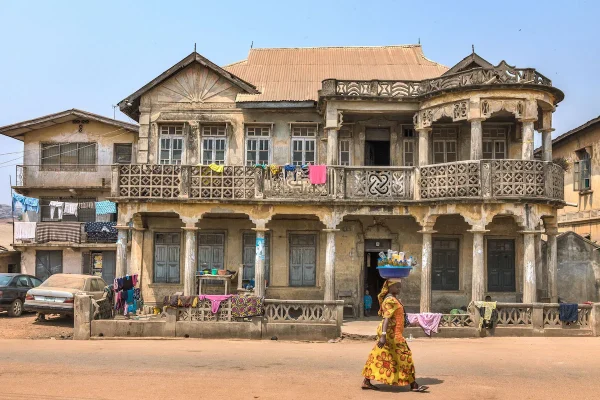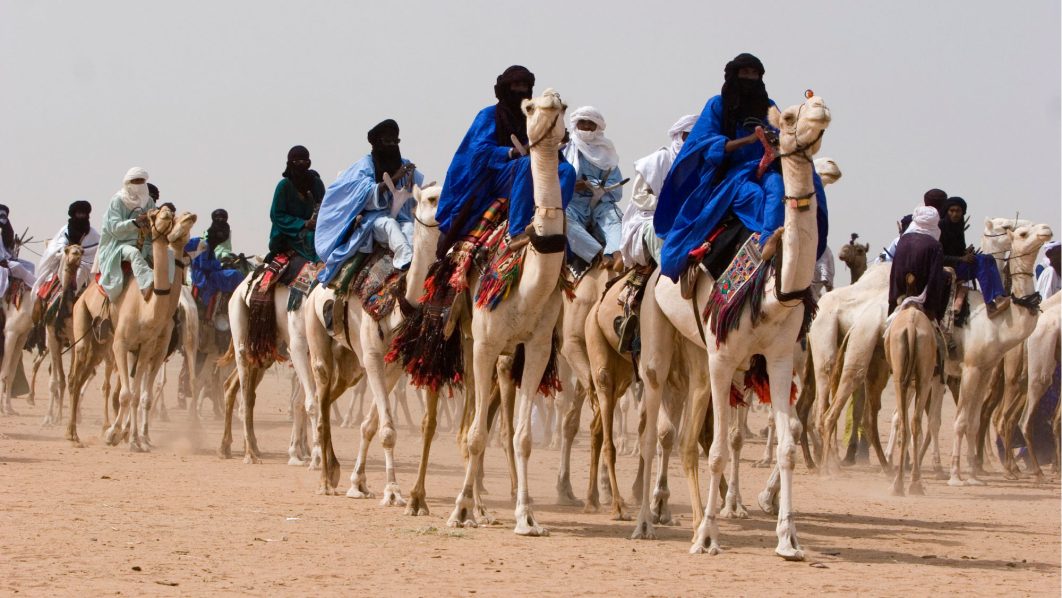 The Fulani people, known for their captivating culture and nomadic lifestyle, represent one of the most fascinating ethnic groups in Africa.
The Fulani people, known for their captivating culture and nomadic lifestyle, represent one of the most fascinating ethnic groups in Africa.
[ad]
Spread across several countries, including Nigeria, Mali, Senegal, and Niger, the Fulani have managed to preserve their rich cultural heritage while adapting to the modern world. In this photographic journey, we embark on a visual exploration of the Fulani culture, their distinctive attire, and the intricacies of their daily lives, showcasing the enduring allure of this unique community.
Guardians Of Tradition
The Fulani are renowned for deep-rooted connection to their traditions and customs. Their nomadic lifestyle has enabled them to maintain a sense of cultural identity that is both captivating and enduring. Central to their culture is their oral tradition, passed down through generations, which includes captivating stories, proverbs, and music that reflect their history and values.
Photograph 1: Elders Gathering for a Storytelling Session
In our first photograph, we witness a group of Fulani elders gathering under a sprawling acacia tree. They engage in a storytelling session, passing on the wisdom and traditions of their people to the younger generation.
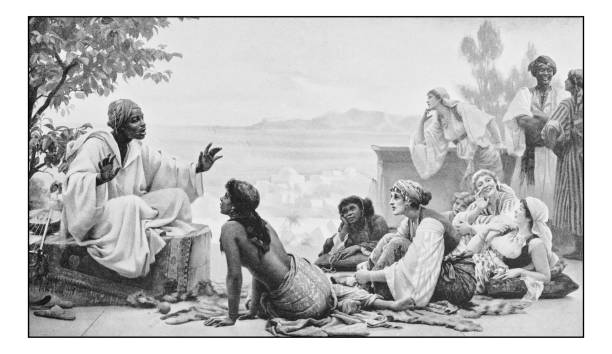
The oral tradition remains a vital aspect of Fulani culture, fostering a strong sense of community and preserving their history.
The Elegant Fulani Attire
One of the most striking aspects of Fulani culture is their traditional attire. The Fulani people are known for their distinctive clothing, characterised by vibrant colours and intricate embroidery. Men and women both take great pride in their attire, which reflects their social status, age, and even marital status.
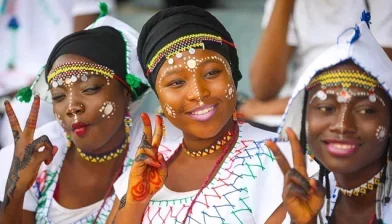 This photograph captures a group of Fulani women adorned in colourful traditional dresses. Each dress tells a story, with patterns and designs symbolising various aspects of their lives. The women’s attire represents not only their cultural pride but also their artistic expression, as they play a significant role in crafting their clothing.
This photograph captures a group of Fulani women adorned in colourful traditional dresses. Each dress tells a story, with patterns and designs symbolising various aspects of their lives. The women’s attire represents not only their cultural pride but also their artistic expression, as they play a significant role in crafting their clothing.
The Nomadic Way Of Life
The Fulani have historically been nomadic herders, known for their expertise in cattle-rearing. Their nomadic lifestyle allows them to traverse vast landscapes in search of grazing lands and water sources for their livestock. This unique way of life has its challenges, but has also been a source of resilience and adaptability.
Photograph 3: Fulani Herders with Their Cattle
Here, we see Fulani herders with their cattle on the move. The bond between the Fulani people and their livestock is profound, as these animals provide not only sustenance but also cultural significance. The nomadic lifestyle promotes resourcefulness and a deep understanding of the natural world.
The Fulani And Nature
The Fulani people’s nomadic lifestyle has fostered a profound connection with the natural world. They possess an intimate knowledge of the environment, enabling them to navigate the terrain and adapt to changing conditions. This connection with nature is reflected in their songs, dances, and rituals.
Photograph 4: Fulani Children at Sunset
As the sun sets over the horizon, we capture the enchanting image of Fulani children at play. Their carefree spirit and connection to nature are evident as they explore the open landscapes surrounding their camp.  The Fulani have a deep respect for the land, understanding its significance in their way of life.
The Fulani have a deep respect for the land, understanding its significance in their way of life.
Challenges And Adaptations
While the nomadic lifestyle has sustained the Fulani for generations, it also presents challenges in the modern world. Environmental changes, land disputes and conflicts with settled communities have forced some to adapt by settling in permanent villages. This transition raises questions about the preservation of their traditional way of life.
Photograph 5: A Fulani Village in Transition
In this photograph, we witness a Fulani village in transition. Traditional huts and settlements coexist with more modern structures, reflecting the challenges of preserving their heritage while embracing aspects of contemporary life. This adaptation reflects the resilience of the Fulani people in the face of change.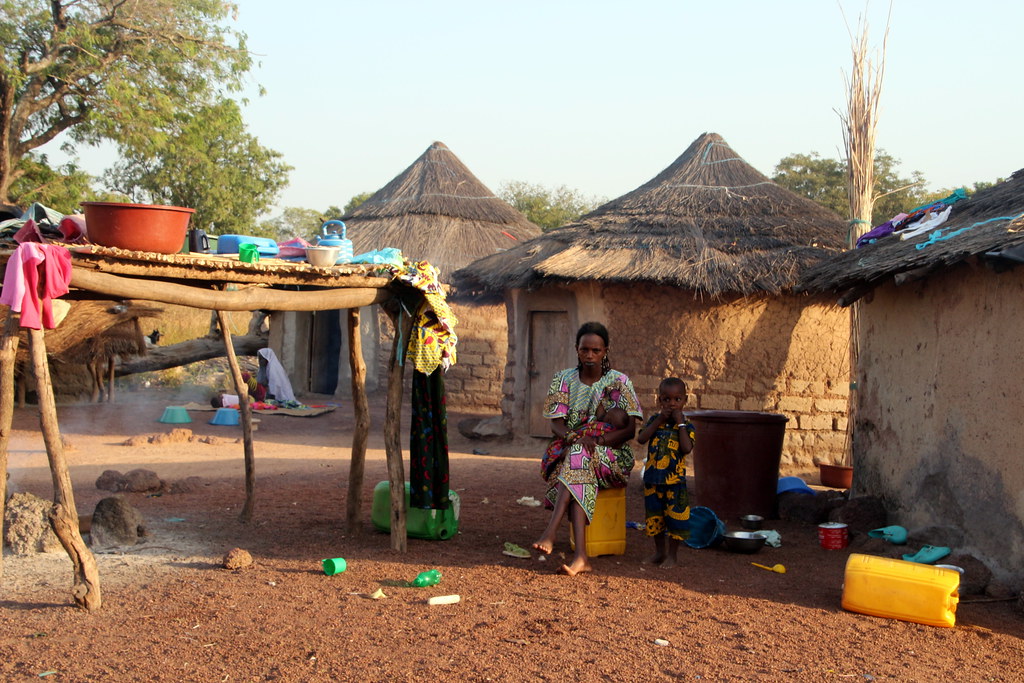
Saying Goodbyes For Now…
The Fulani culture and nomadic lifestyle are a testament to the enduring allure of Africa’s diverse ethnic groups. Through a visually stunning photo essay, we have explored the captivating world of the Fulani people, their rich cultural traditions, and their harmonious relationship with nature.
As they navigate the challenges of the modern world, the Fulani continue to stand as guardians of tradition, offering us a glimpse into a way of life that remains both captivating and resilient in an ever-changing world.
[ad unit=2]



